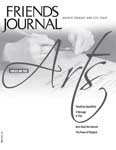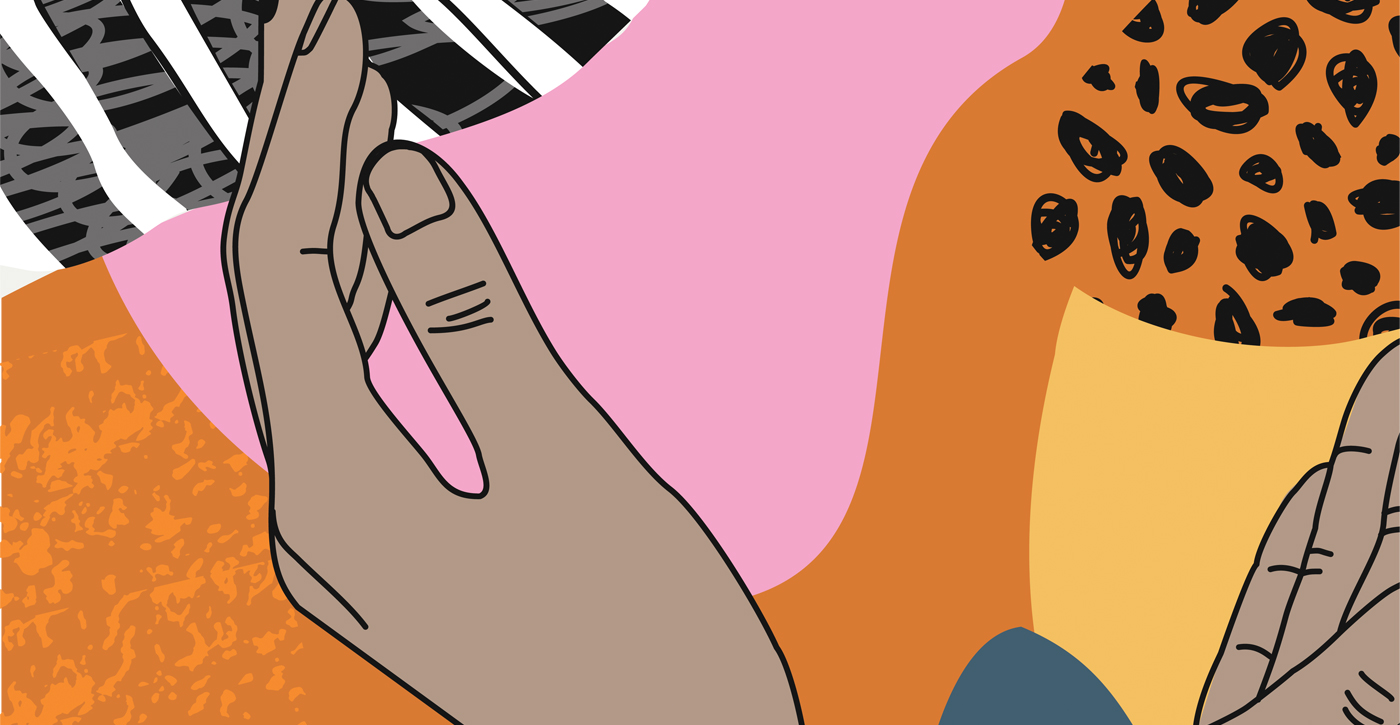Viewpoint
Listening and Speaking from the Heart
In relations among Friends, I encourage us all to practice listening from the heart and speaking from the heart. By this I mean hearing someone speak in their accustomed words, and transposing into your own terms as you listen, and then replying as you are led while the other person listens. This applies to both reading and writing.
In such a relationship, we each speak freely. We respond to the source and purpose of the words rather than to their particular form, to the spirit rather than the letter. We support Friends whose beliefs differ from our own as strongly as we support Friends whose beliefs we share. For instance, in Costa Rica sometimes before a trip my friends bless me in the name of various Catholic saints. I deeply appreciate their desire to do all they can to keep me safe. Although the entities and powers they invoke are imaginary from my point of view, I sincerely thank them and wish them well in my own naturalistic terms.
This contrasts with our usual practice of ignoring or hiding our differences, limiting the dialogue to terms we all agree on. Keeping the peace by keeping quiet is the norm in society at large and in some Quaker meetings and organizations, but it is a false peace that is based on not asking and not telling. There is a better way.
Listening and speaking from the heart is built on a set of experiences that we all have had. We all know people living good lives accompanied by a great variety of beliefs. We know that today and through history many varieties of Friends have lived as Quakers. We see people loving across differences. We reach the same point by different paths, and we cooperate even as we speak differently about what we are doing. We worship with Friends with whom we disagree. Experiences like these sustain our search for innovative ways to embrace unity amid diversity.
As speakers speak and listeners translate, the burden of not offending each other shifts from the speaker toward the listener. It can shift back when listeners haven’t learned about our way of speaking and listening. With visitors and the very young, and when writing for the general public, we need to avoid speaking and writing from a particular framework of belief unless we have made it clear that this is but one of many viewpoints in our diverse group. When we speak for the group, we speak from a larger heart than just our own.
In a loving community, unity does not require agreement on our various approaches to life. It can be simply a matter of moving forward together. We are familiar with unity in this sense in our meetings for worship for attention to business. Our shared practices and purposes bind us together as a group. Our identity as Friends is evident in the life of our community, rather than in our words. Membership can be a sign of our commitment to each other.
Listening and speaking and reading and writing from the heart can be a great help in many situations. It can facilitate intra-faith dialogue in Friends’ meetings and organizations and families. It applies to differences in religion and philosophy and politics and values. You may ask, What does God require of me?, while I ask, What is required of me? You can work for change by organizing the 99 percent, and I work by quietly building friendships with particular individuals. You may be a Pentecostal pastor and I an atheist Friend and yet we join in loving a person living with HIV/AIDS. Starting from the heart doesn’t resolve our differences, but it helps us work together, which can be a significant step forward.
Elements of this approach are well known to Quakers, as in our emphasis on listening, and on speaking as led. We seek ways to love our neighbors. We try to care about both the needs of the individual and the needs of the community of individuals. We are skeptical of words that divide, turning instead to simple friendship. (For more, see my anthology at www.nontheistfriends.org.)
Let us unite in faith-based action even as our faiths differ. Let the many kinds of Friends worship together, and practice collective discernment, and in other ways be Friends together. Let our rich variety of experiences be a blessing for our group. Let us openly and joyfully celebrate our unity amid diversity.
Os Cresson
Iowa City, Iowa
Forum
Modern conceptions of God
While we move on with our Christian faith and journey (Douglas C. Bennett, “Toward a Testimony of Integrity,” FJ, March), it will be necessary to explore a more modern conception of God, Spirit, and Jesus, who, by means of teaching and living, connects us by the Spirit to God. I for one, am glad Jesus testified about commandments as he did, because by keeping his answer universalistic and all-encompassing, he allows his words to project their meaning down through the ages, as change occurs and as we adapt to it. Consider how his choice of the word “neighbor” prevents people from interpreting his answer in especially particularist ways. A neighbor could be anybody.
Charles H. Winslow
Indianapolis, Ind.
I like the idea of “the nursery of heaven” with the key ingredients being “love, caring, commitment and fidelity.” I would also add that the testimony of equality is pertinent to this discussion in that the homosexual relationship is of equal worth and value to that of the heterosexual relationship, and that the testimony of integrity is also pertinent because it implies an honesty and wholeness to one’s or to a couple’s life relationship. Finally, I would add that, at least for Liberal Friends, the concept or belief in continuing revelation of the discernment of God’s will for us is an ongoing historical process that allows us to live out our life and express our lives in ways today that could not be envisioned in the past.
Ken Woerthwein
York, Pa.
Abuse villains and victims
The article by Melissa Levine and Betsy Neale (“Bringing Sexual Abuse to Light,” FJ, March) concerns me and has left me disappointed. I advocate for restorative justice and I question our criminal justice system but from the queries presented in this article I can’t help but notice very little discussion about the victim having their needs and the perpetrator being held accountable by the community.
None of the listed queries even include the word “victim.” The article almost forgets her except for the obligatory “we maintained our concern about the safety of the victim.” Perhaps queries about the needs and experience of the victim arose and perhaps the community did hold the perpetrator accountable, but it isn’t made clear in this article. This leads me to believe that despite our testimony to equality, Quakers (like much of society) are still actively participating in rape culture, wherein the attention goes to the perpetrator and the victim becomes merely a vehicle for a discussion.
Outside of the conversation about sexual assault, there is a trend I’ve observed amongst Friends to immediately jump to forgiving a member/attendee of a meeting who has done something that is inexcusable. Forgiveness should be treated as a selfish act (by selfish I mean something you do purely for your own benefit) in addition to something you do for the person who’s wronged you. I’d go as far as to say that you can even leave the perpetrator out of the equation entirely when reaching forgiveness.
It’s possible to forgive an act that seems unforgivable, but Friends seem uncomfortable with asking themselves if they should. Asking the hard questions and holding community members accountable with specific consequences opens up many more opportunities for forgiveness and reconciliation.
Hannah Jeffrey
Philadelphia, Pa.
We recently had to deal with the knowledge of incest within the meeting at the death of the long-standing respected member who had been the perpetrator; it was a new and very uncomfortable feeling. As I have grown and friends have confided their experiences to me, I have found I have been far from alone in sexual abuse experiences, but in the past there was always the clear line between the villain and the victim. This was the first time that I could clearly see that there was “that of God” in the villain.
Joanne
On Friendsjournal.org
Abusers are often victims, and their sins do not blot out the Light that shines in them. But I would like to add one dimension to this discussion which often gets left out. I have spent most of my life recovering from psychological and sexual abuse by my mother. It cost me my first marriage and almost my second one. It has left me struggling to trust, to love, and to have uncomplicated intimacy with my wife who means everything to me. I’ve spent years in counselling, years struggling to talk about it, years trying to find peace. And I’m the lucky one, the one who managed, somehow, to escape. My brothers did not fare so well.
Men who have suffered abuse speak about it with great difficulty. Feelings of shame certainly lie behind this. In part this also has to do with male reticence in a culture which trains boys to “man up” and shames them when they can’t. Among Friends I had to learn to choose my words very carefully so that others didn’t mistake my anger for unthinking misogyny. And that was hard: it seemed horribly unfair that I should have to choke back my anger about what happened to me, especially among those who should be the best listeners of all.
Name withheld
On Friendsjournal.org
Difficult conversations
One of the things I find intriguing about “Loving the Difficult People” (Karen Ainslee, FJ, March) is the use of a pseudonym by the author. I would love to have been a fly on the wall during the discernment which (I hope) went into the planning of this issue; the intersection of difficult conversations, integrity, and bearing witness, particularly when those conversations are carried out in a public space. I hope some of that story will appear in future issues.
Nancy Reeves
Clinton, Ohio
The author responds:
I would love to be out of the closet as a sex worker. But I have had some bad experiences in that regard, as have other sex workers I have known. People who have known and respected me for years suddenly decide that nothing I have to say, on any topic, is worth listening to any more.
Aside from my main theme (the spiritual aspect of sex work), there were two other reasons I wrote this article: to let people know that not all victims of sexual abuse are female and not all perpetrators are male; and to start a discussion about the value of sex work.
Why pick on sex work? Many economic activities are exploitative, in one way or another. The Cadburys made a fortune exploiting people’s cravings for chocolate and sugar. International tourism exploits the human desire to travel (certainly not a necessity of life), meanwhile spewing greenhouse gas emissions into the atmosphere and making the economies of many developing countries dependent on this external source of revenue rather than developing their internal resources and using them to support their own economies.
As for “making money off someone’s pain,” one could say the same thing about therapists or even other medical professionals. Yes, they are trying to help people heal from pain, but so can sex workers, sometimes; that was my main point. And I would be ecstatic if all the callers I talked to who are in pain would deal with it in better ways. I have encouraged them to, when I sense that they are open to that path. Most of them are not.
“Karen Ainslee”
Western United States
Correction
In the March 2013 “Among Friends” column, we stated that the number of U.S. Quakers in 2006 was 105,835. Friends World Committee for Consultation, Section of the Americas, determined in 2007 that the published 2006 figure was inaccurate and issued a revision, which was published as part of an insert that ran in the October 2007 Friends Journal. According to FWCC, the number of U.S. Quakers in 2006 was actually 86,837, and the drop in the U.S. Quaker population since then is consequently 12 percent. We regret the error.






I don’t know if this breaks any rules, but I would like to hear more from “Karen Ainslee”, or even be contacted by her, for positive reasons (no bashing), in any anonymous way she sees fit. It would be fine to contact me by my e-mail; though not published, it’s fine to share it with her. I’m female, and in complete support of her work.